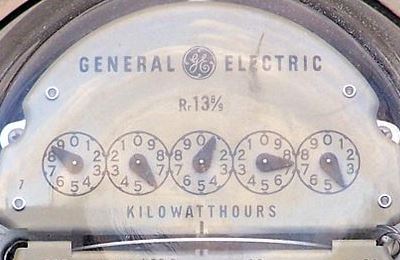The bull market is nearing six years old, and the markets rose yet again in 2014, with gains of 7.5% in the Dow Jones Industrial Average and 11.4% for the S&P 500 Index. Those gains were outside of dividends in the individual stocks, but General Electric Co. (NYSE: GE) closed out the year 2014 at $25.27, for a loss of 6.6%, including its dividend adjustments. 24/7 has decided to run a bullish and bearish outlook for GE and other Dow stocks to see what the prospects are for 2015 and beyond.
With a 2014 trading range of $23.69 to $27.94, GE’s end-of-year consensus analyst price target of $28.82 implied upside of 14% this year. Then there is the dividend yield of 3.6% to consider, after it was raised in December.
The first thing to consider about the General Electric of 2015 is that the GE of today is about to be vastly different from the GE that your parents were used to. The company is becoming more of an industrial conglomerate, with less and less dependency on Joe Consumer’s durable goods purchases and financial credit.
If all goes the way GE expects, then 2015 will complete the spin-off of Synchrony Financial (NYSE: SYF), after its successful IPO in 2014. GE also will own Alstom in Europe and will no longer have its appliances unit owned in-house. Unfortunately, GE also has made a larger step into oil and gas and the energy sector at a time when oil prices have been crushed — a move that hurts GE more than hurts most of its rival conglomerates.
ALSO READ: The Bullish and Bearish Case for Boeing in 2015
General Electric had a market cap of $254 billion at the end of 2014. That is likely to drop once the spin-off of Synchrony occurs. Synchrony’s market cap as of the end of 2014 was almost $25 billion.
GE still has a lot going for it. On top of cost controls, the aircraft boom taking place is a major win for GE. Barron’s recently included GE on its Best Income Ideas for 2015 list right at the start of 2015. Another win was that the stock still effectively held higher in December when CEO Jeff Immelt lowered guidance based on the oil and gas operations, looking for perhaps breakeven results at best in 2015.
Unfortunately, the conglomerate got off to a rough start in the new year. One issue was an analyst downgrade, to Hold from Buy with the price target cut to $28 from $30 at Deutsche Bank. Another risk is that the emerging economies and growth economies around the globe are suffering sub-optimal growth at best. The strong U.S. dollar may also make some of GE’s pending and potential projects more expensive for foreign buyers.
The long and short of the matter is that GE needs the international economies and oil to stabilize for it to be viewed favorably again. The conglomerate still has a massive backlog, which was recently listed as a record backlog. Imagine if oil stabilizes and if Europe, China, Russia and Brazil start to stabilize too. All of a sudden, GE might simply become the perfect company.
A lot of the parts are still moving at GE. Some analysts have tried to model the post-change GE, but so far most reports still consider GE as the same company that it has been for years.
After a dividend-adjusted performance of -6.6% in 2014, General Electric’s total expected upside, with the dividend included, will be about 17.5% in 2015. That implied upside may even be a tad a higher after the selling seen initially in 2015. Now the rest is up to GE’s markets, with the dollar and oil remaining wild cards.
ALSO READ: The Bullish and Bearish Case for Goldman Sachs in 2015
Find a Qualified Financial Advisor (Sponsor)
Finding a qualified financial advisor doesn’t have to be hard. SmartAsset’s free tool matches you with up to 3 fiduciary financial advisors in your area in 5 minutes. Each advisor has been vetted by SmartAsset and is held to a fiduciary standard to act in your best interests. If you’re ready to be matched with local advisors that can help you achieve your financial goals, get started now.
Thank you for reading! Have some feedback for us?
Contact the 24/7 Wall St. editorial team.



